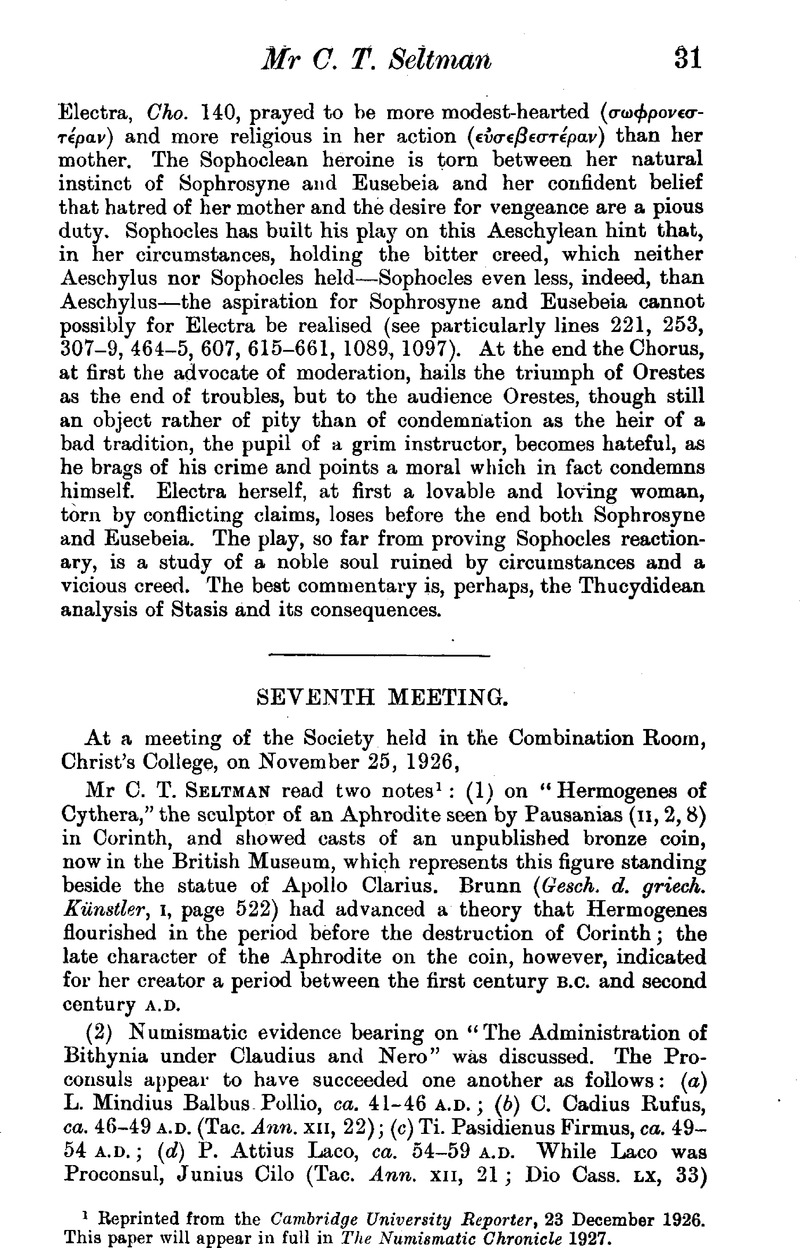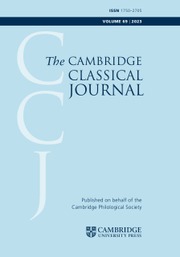No CrossRef data available.
Article contents
Seventh Meeting
Published online by Cambridge University Press: 02 April 2015
Abstract

- Type
- Michaelmas Term, 1926
- Information
- Copyright
- Copyright © The Author(s). Published online by Cambridge University Press 1927
References
page 31 note 1 Reprinted from the Cambridge University Reporter, 23 December 1926. This paper will appear in full in The Numismatic Chronicle 1927.
page 33 note 1 Perhaps corrupt. Or the elision may have an influence.
page 33 note 2 See Schneider on Callim. L. III, 7 μή ![]() μοι
μοι ![]() φοῑβος ἐρίζῃ.
φοῑβος ἐρίζῃ.
page 33 note 3 ὅκωσπερ is used by Heraclitus. ὥσπερ may introduce a new sentence.
page 37 note 1 As noted above this does not actually occur: its non-occurrence may only be a corollary and not a rule.
page 37 note 2 With exceptions noted above.
page 37 note 3 Once πολλὰ δ' (adv.), twice parts of ![]() .
.
page 38 note 1 If per ridiculum we read -ν ὠσὶν, we should have a rhythm (two unconnected nouns) unexampled in tragedy! A late writer of the Christian Era has (A.P. xvi. 52Google Scholar) Ἤλις, Ἄρϓος, Ἄκτιον. I find the phenomenon common in schoolboys' exercises.
page 40 note 1 Read χόρτον.
page 40 note 2 Who merely chronicle absurd corruptions.
page 40 note 3 Hesychius is of immense value in that he glosses almost every other word in Hipponax. But to the metrist his citations of one or two words avail little.
page 41 note 1 For trimeters the proportion is seventeen to thirty-five.
page 41 note 2 But see below, p. 46.
page 42 note 1 There is no proof that Hipponax never wrote whole poems in pure iambi.
page 43 note 1 Perhaps μιν = “it,”αὐτόν = “him,” αὐτῇ = “her” in the Ephesian dialect.
page 43 note 2 Two resolved feet are incredible, since not even Herodes permits them.




